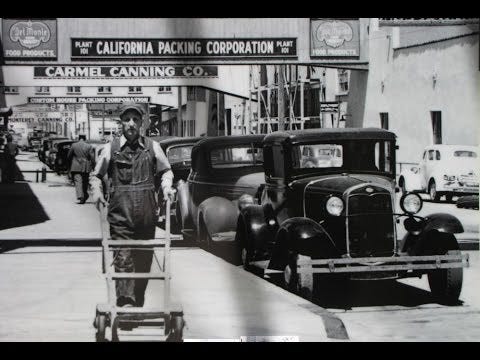John Steinbeck
Hailed as one of the world's great writers, John Steinbeck wrote like someone born to write. His words flowed with remarkable beauty, like one of his loves, nature itself. In that prose, John captured life, the essence of being human with the many contradictions and paradoxes, and with a historian's eye, his present times, which were some of the most difficult in U.S. history. Yet, while John wrote with artistic mastery, he thought of writing like a scientist, calling his works "experiments." Many of them proved to be quite successful.
As with many of the greats, he worked diligently. "I write many thousands of words a day and some of them go on paper. And of those which are written down, only a few are ever meant to be seen," he would say. Along with the hard work came many failures and years of effort just to get to his first successes.
John loved writing and believed in the importance of literature. In his Nobel Prize acceptance speech, he said, "The writer is delegated to declare and to celebrate man's proven capacity for greatness of heart and spirit—for gallantry in defeat—for courage, compassion and love." John would do that and much more in his many works.
John was born on February 27, 1902, in Salinas, California, the third of four children of John Ernst Steinbeck, a treasurer for Monterey County, and Olive Hamilton, a former schoolteacher. His upbringing here, in the rugged beauty and agricultural richness of Central California, would deeply influence his writing, providing him with firsthand insight into the lives of migrant workers, ranchers, and farm laborers that was specific to this region of the country. And it was here that he fell in love with writing during his early teen years.
Keep reading with a 7-day free trial
Subscribe to Historical Snapshots to keep reading this post and get 7 days of free access to the full post archives.



